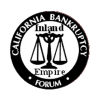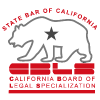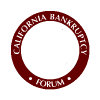Bankruptcy is the process by which a consumer or a business can eliminate or repay some or all of their debts while being protected by the federal bankruptcy court. It enables debtors to obtain a “fresh start” with their finances.
There are many reasons why people file for bankruptcy relief: unemployment, large medical debts, over-extended credit, divorce, foreclosure, repossession retirement, disability, and taxes are among the more common reasons.
The most widespread myth about bankruptcy is that it ruins your credit for 10 years. Very quickly after you receive your discharge in a Chapter 7 and sometimes even during the case, your credit will jump back up. Generally, if you make wise financial decisions, your credit can be excellent within 2 years. However, the bankruptcy will show up on your credit report for 10 years. If you are filing a Chapter 13, you will likely see your credit score go up during the case.
Chapter 7 bankruptcy is the chapter in which most debts can be discharged without payment. Individual debtors are allowed to “exempt” certain of their assets, meaning that they can keep them and the assets will not be used to pay creditors.
Chapter 13 bankruptcy is appropriate for people who have fallen behind in mortgage, car, or other secured debt payments and need to get them caught up, who have substantial tax debt, have property that they would lost in a Chapter 7 case, or simply have household income too high to qualify for Chapter 7. A Chapter 13 Plan would require a payment plan lasting three to five year, but the Debtors can bring the secured debt payments current, pay off tax debt which would otherwise be non-dischargeable at a reduced cost and keep the property which they would lose if they had filed a Chapter 7 case.
There are other chapters that are usually not applicable to most consumers: Chapter 9 bankruptcy only is available to municipalities/governments, Chapter 11 bankruptcy is available to businesses or individuals who have substantial debts and assets and can be used to pay off debts while continuing to function as a business. Chapter 11 can also be used by individuals who have too much debt to qualify and cannot otherwise file for Chapter 13 bankruptcy. Chapter 12 bankruptcy is only available to family farmers and fishermen, and Chapter 15 bankruptcy is only relevant in the context of international litigation.
A Chapter 7 trustee is an agent appointed by the Department of Justice, usually an attorney or an accountant, whose primary duty is to liquidate property, avoid certain transfers, and pay money to the creditors, something which occurs in only a very small percentage of the cases filed. In the more typical Chapter 7 case, the trustee will review the bankruptcy petition and related documents and will conduct a 341(a) examination, also known as the Meeting of Creditors. One of our attorneys will be present with you at that meeting and will help guide you through it. The trustee is paid a flat rate per case and is also entitled to a percentage of all assets liquidated.
A Chapter 13 trustee will also review the bankruptcy petition and related documents and will conduct a 341(a) examination, also known as the Meeting of Creditors, where one of our attorneys will be there in attendance with you. After the meeting, the Chapter 13 trustee will advise the Court whether or not they believe your Chapter 13 Plan complies with all of the applicable provisions of the Bankruptcy Code and will make a recommendation as to whether your plan of repayment should be approved by the Court. After your plan is approved, the Trustee’s primary duty is to take your plan payment and make payments to your creditors in accordance with your Chapter 13 Plan. The trustee will also monitor your plan to make sure that you are complying with all of the plan terms.
The Office of the United States Trustee is the government agency that is a part of the Department of Justice that is tasked with overseeing bankruptcy. There are various ways that the US Trustee can get involved in a case.
Chapter 7 bankruptcy, also referred to as “liquidation bankruptcy” comes with the risk that you could lose property that is not exempted. Our goal is to mitigate that risk by utilizing these exemptions and sometimes guiding you through exemption planning prior to filing your case.
Chapter 13 bankruptcy does not come with the risk of losing property, but your property and exemptions are a factor in determining your plan payment amount. Chapter 13 can also allow you to surrender property that you do not wish to keep.
Yes. All of your debts need to be listed, including debts that will not be discharged such as student loans and taxes. We often have clients that want to keep some of their cards and not list them or will pay down the balances, but this is a bad idea and you should assume that the accounts will be closed once your case is filed.
In most cases, yes. However there are some situations where it will not restore your status.
Bankruptcy alone cannot be used as a basis for negatively affecting your immigration status or pending application for citizenship or a visa.
Exemptions are laws that protect your property from being sold by the bankruptcy trustee. When you file for bankruptcy, everything you own becomes part of the bankruptcy estate. One of our roles as your attorney is to help you protect as much property as possible by using the exemption laws so that your property will not be sold. In California, we have 3 separate sets of bankruptcy exemptions, but not all of them are applicable in every case.
Exemptions in a Chapter 13 case play a different role since you cannot be forced to turnover property, but your exemptions may be a factor in determining your plan payment amount.
In a Chapter 7 case, property that is not covered by exemptions might need to be turned over to the trustee unless there is some other way to protect it. The Chapter 7 trustees do not take all property that is non-exempt, but must first make a determination whether going after this property would provide a significant benefit to your creditors. The process the trustee must take to force turnover allows for objections to be raised and for negotiations to take place.
Non-exempt property in a Chapter 13 case is not subject to forced turnover, but may be a factor in determining your plan payment amount.
A bankruptcy will stop your utilities from being shut off. However, you may be required to provide the utility company with some form of adequate assurances in the form of a security deposit that you will be able to make future utility payments. You may also be able to discharge your back payments.
The laws concerning dischargeability of tax debt can get extremely complicated. However, most tax debts that were due more than 3 years ago will be discharged.
Generally co-signers /co-debtors are not affected when one person on the account files bankruptcy. However, this can depend on the creditors’ internal policies. In a Chapter 13, co-signers may also receive some protections afforded by the bankruptcy stay.
Everyone who files bankruptcy must complete a credit counseling course before they file their bankruptcy petition. This only takes about an hour and can be done online. The counseling involves a review of your debt, your income, and your ability to make payments on your debts.
After a case is filed, you are required to complete a financial education course before they are eligible for a discharge. It involves some reading and taking a test. If the course is not completed timely, your case may close without a discharge.
Once you have retained one of our attorneys, you may inform your creditors that you have retained our firm to file a bankruptcy and give them our name and number. Once your petition is filed, your creditors will be subject to the bankruptcy stay and may be liable for severe penalties if they attempt to contact you or collect a debt. Once you receive your discharge, that puts a permanent end to collection activity and creditors can be held liable for violations of this discharge.
Your spouse does not need to file. However, based on your particular situation, it may make the most sense for you both to file a joint bankruptcy petition. Again, we will be able to give you a clear picture of the pros and cons.
A bankruptcy proceeding will stop any foreclosure actions on your home. This does not necessarily permanently stop the foreclosure, but a bankruptcy might be able to help you get caught up on payments or give you some breathing room. A Chapter 7 will usually only delay a foreclosure, which will allow you some breathing room to reassess your options. A Chapter 13 will allow you to keep your home through a repayment plan.
Your “day in court” for your bankruptcy is usually just the 341(a) Meeting of Creditors hearing. This is where you will go before the bankruptcy trustee with one of our attorneys and be asked questions about your bankruptcy. The name “meeting of the creditors” is somewhat misleading since creditors are rarely present. For most cases, the trustee will ask you to attest the the accuracy and honesty of your bankruptcy petition, ask a few simple questions, and you will then be free to leave.
There are many other proceedings that are held in the courthouse. However, most of these only require that your attorney be present to advocate on your behalf.
After you have received your discharge and your case is closed, you should move on with your post-bankruptcy life and work towards rebuilding your credit. The negative impact of bankruptcy is usually very minimal and you will be in a much better position to achieve a better financial (and emotional) future.
Bankruptcy is not for everyone. For some, it is simply not an option due to eligibility requirements. For others, bankruptcy can result in liquidation of your property. If your debts are unmanageable outside of bankruptcy, planning may put you into a position where you are able to file and succeed in bankruptcy.
A discharge is a court order that prevents creditors from attempting to collect a debt and effectively eliminates any personal obligation on that debt. A discharge is the ultimate goal of filing for bankruptcy. However, some may seek bankruptcy relief through reorganization of debts without the need for a discharge. Not all debts are dischargeable, such as most student loans, recent income tax debt, and others.
It depends. Most credit cards will be closed, including accounts that have a $0 balance. Some banks, usually credit unions, may also close your checking or savings account.
Making payments on certain debts prior to filing bankruptcy may be a waste of money and can complicate your case.
If a bankruptcy is filed at the wrong time, it may already be too late to salvage your situation. If a Chapter 7 is filed when you are at risk of losing property, such as a house, car, bank account, or tax refund, you cannot easily dismiss the case to avoid this property being forcibly taken by the Chapter 7 trustee. Even at the earliest stages before you’ve disclosed your assets and financial affairs, an attempt to dismiss will raise suspicion and the trustee can force the case to proceed, force you to disclose your assets, and force the sale or turnover of your home, car, bank accounts, or anything else that is not exempt or not disclosed. At this point, your best outcome will be to mitigate the harm. Proper planning will ensure that the outcome of your case will be a near certainty before it is filed.
Timing can be very important when filing for bankruptcy. Sometimes immediate filing may be necessary to stop a foreclosure or repossession. However, it is can also be necessary to delay filing in order to qualify for bankruptcy protection or to take full advantage of a discharge. Other factors may affect the timing of filing your bankruptcy petition. Your attorney will be able to determine when is the best time to file after reviewing your case.
It is helpful to bring with you to your initial consultation a list of your debts and assets, recent proof of income (such as pay stubs), as well as evidence of any kind of ongoing or imminent collection actions such as a foreclosure or wage garnishment.
Your bankruptcy petition and other necessary disclosures will pertain to your current and future financial situation as well as certain look-back periods extending up to 10 years.
In 2005, Congress passed the Bankruptcy Abuse Prevention and Consumer Protection Act (BAPCPA) which overhauled the Bankruptcy Code and added an income-based qualification for Chapter 7 which is based on a calculation of your recent income and comparing this to the median income for a household of your size in your state. Cases where this income is shown to be below-median, this test is “passed”. Where this income is shown to be above-median, a presumption arises that may cause someone to not qualify for Chapter 7 However, you may be able to still qualify for Chapter 7 by rebutting this presumption.
The Means Test is also used in Chapter 13 cases as a factor in determining your plan payment amount.
Yes. Your creditors have the right to object to the discharge of a debt or to your discharge entirely. However, there are very few grounds upon which a creditor may raise these objections such as fraud, false representations, abuse of process, etc. The trustee assigned to your case or the US Trustee could also raise similar objections.
These situations are very rare and we will usually be able to anticipate them depending on your financial circumstances.
Some creditors might require that you sign a reaffirmation agreement during your bankruptcy in order to retain property that is secured by a debt, usually a vehicle. This agreement will effectively treat a specific debt as if it had never been included in the bankruptcy and it will not get discharged. If a reaffirmation agreement is signed, the debtor may later be liable for any deficiency if that property is repossessed and sold for an amount less that the debt. Whether or not you should reaffirm a debt should be treated as a major decision since you also have other and possibly less burdensome options available.
There are some debts that you should continue paying even if you are filing bankruptcy. These are usually mortgage, rent, auto loans, student loans, or non-dischargeable taxes. As a rule of thumb, if a debt is going to be discharged, you do not need to pay it. Your attorney can advise you on which debts to continue paying.
If you operate a business that is an LLC or a corporation, the business might be eligible to file for bankruptcy under Chapters 7 or 11 depending whether the business is going to cease or continue operating.
Businesses that are not an LLC or corporation are not eligible to file, but these business debts that are the liability of the owners and operators might be handled by a personal bankruptcy under Chapters 7 or 13.
Generally, student loans cannot be discharged in a bankruptcy. However, there are some circumstances in which they can be discharged, such as when the repayment of the student loans would result in an unreasonable hardship or if the debt does not qualify as a type of student loan that is protected against discharge.
A secured debt is a debt that attaches to a piece of property, an unsecured debt is not attached to any piece of property. An unsecured debt, such as a credit card debt, can only be enforced after the creditor files a lawsuit against you and obtains a judgment. Thereafter it can be enforced by a sheriff levying your bank account or garnishing your wages. In the case of a secured debt, such as a mortgage or a auto loan, if you default on paying of the debt, the creditor can repossess piece of property and sell it with the proceeds going towards paying off your debt and any deficiency will be treated as unsecured debt for which you will be personally liable.
Yes. Regardless of whether you haven’t missed a single payment or if you are having your wages garnished, a discharge will wipe out any debt that is not a specific type of non-dischargeable debt, such as student loans, taxes, or debts based on fraud. Additionally, we can often have judgment liens released from property so that the judgment can be fully unsecured and discharged.
Whether or not you can keep your home depends on whether there is any equity in the property that is not exempt. As of 2021, the homestead exemption in California is between $300,000 and $600,000 depending on which county you live in. In a Chapter 13, you can keep your property regardless of how much equity you have. And in either Chapter, you surrender the property if you do not wish to keep it.
Many people think that if your income is above-median, then you cannot file a Chapter 7 case.
The Means Test in a Chapter 7 case contains two parts: 1) a comparison to median-income; 2) a calculation of disposable income. If you are above-median, but your expenses and other deductions show that you do not have sufficient disposable income to make Chapter 13 payments, then you can still file a Chapter 7.
Additionally, even if your Means Test shows that you do have disposable income, the presumption that you should file a Chapter 13 can be rebutted by showing that there are “special circumstances” which should be considered.
As a practical matter, most debts are discharged. However, there are some debts that will not be discharged, such as recent tax debt and child/spousal support debts. Other debts might survive discharge if the creditor successfully prevails in an adversary proceeding based on one of the non-dischargeability provisions, such as fraud or intentional damage to property.
Generally, people who are in a stressed financial situation are eligible for bankruptcy and it is often the most financially advantageous way to handle debt. However, people who own and want to retain too much property and cannot propose a plan that would allow them to keep their property may not want to file for bankruptcy since their property could be liquidated by the trustee. Your attorney will be able to give you a clear picture of what your bankruptcy options are and we will not advise you to file bankruptcy if it is not in your best interests.
This is a very complex area of the law and really depends on the specifics of your financial situation. Your attorney will be able to advise you of how your spouse could potentially be affected.
Once your bankruptcy is filed, creditors will not be allowed to take any actions to collect on a debt. If they fail to abide by this order, they will be subject to being held in contempt. Successfully having a creditor held in contempt can also result in you receiving an award of monetary damages.
A lien can be “stripped” when you have more than one lien on your property and the senior lien is owed more than your property is worth. If this is the case, the junior lien can be removed from and treated as unsecured debt which can be discharged. Liens can only be stripped in Chapters 13 and 11, but not in Chapter 7 case.
A somewhat similar process is available in Chapter 7 or 13 for removing judgment liens by filing a motion to avoid lien. This can be done even if you have equity in the property.
This really depends on which Chapter you previously filed, what happened in that case, and which chapter you intend to file in the future. For a more in depth look into this, you can read our article on multiple filings.
Generally, a Chapter 7 will take about four to six months and a Chapter 13 will take 36 to 60 months. However, depending on the circumstances of your case, a Chapter 7 can take longer and a Chapter 13 can be shorter.








